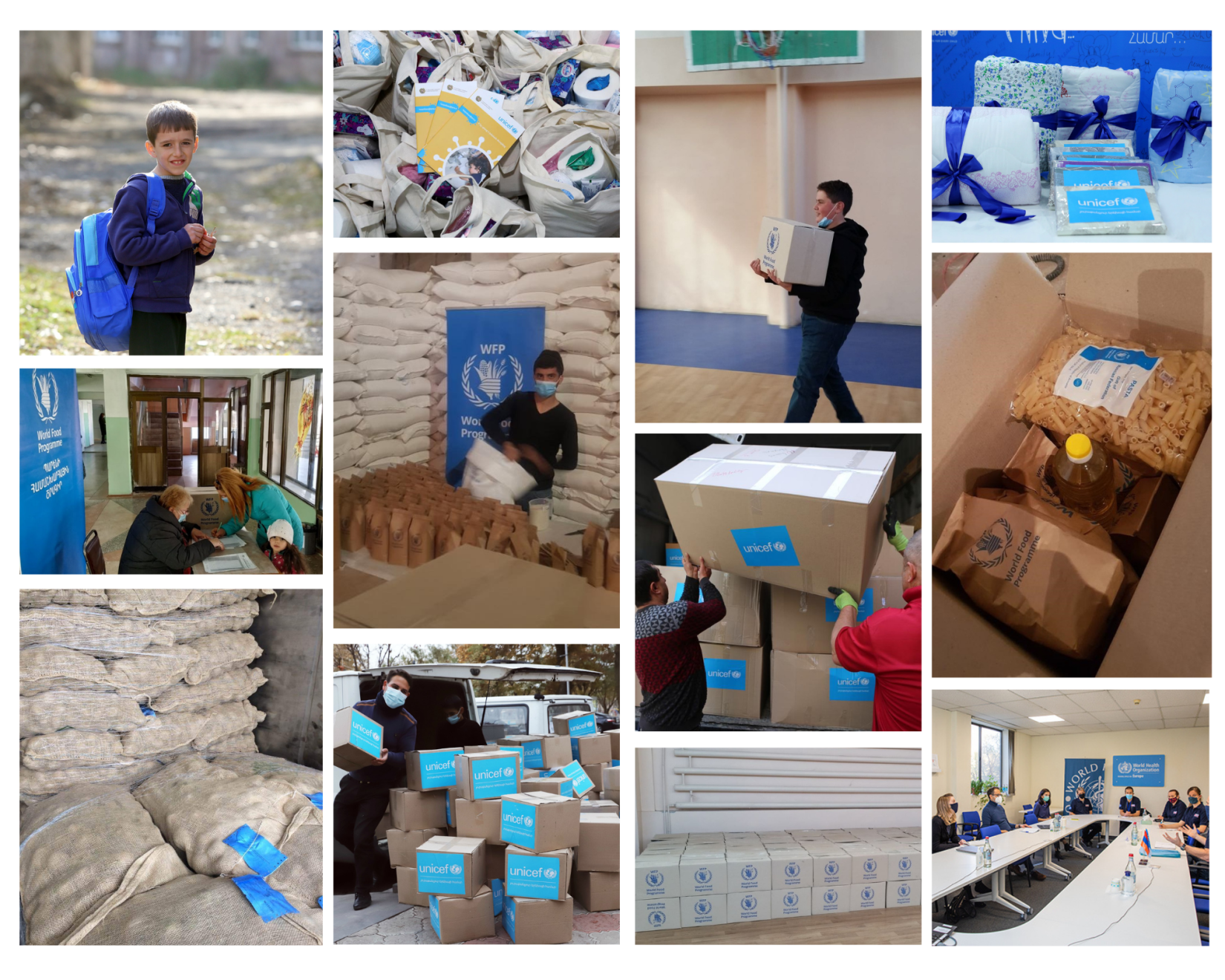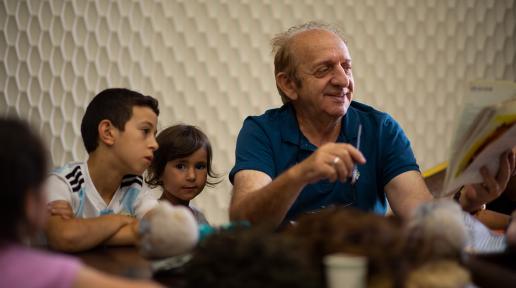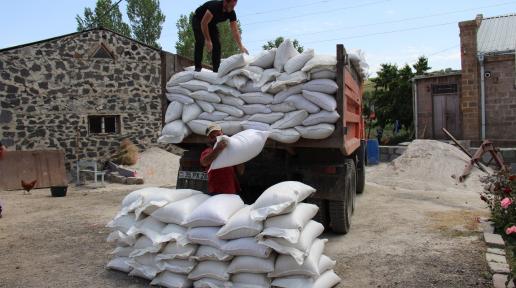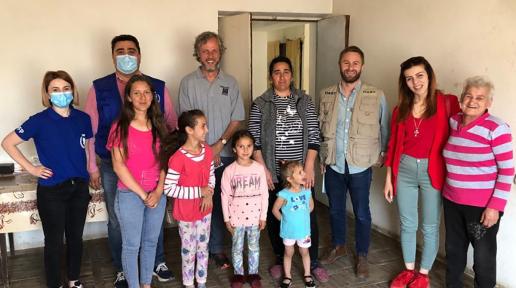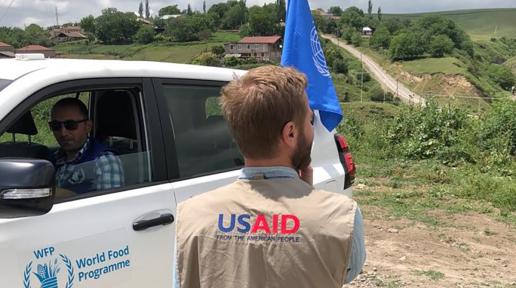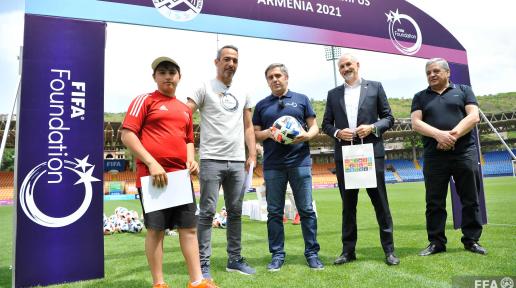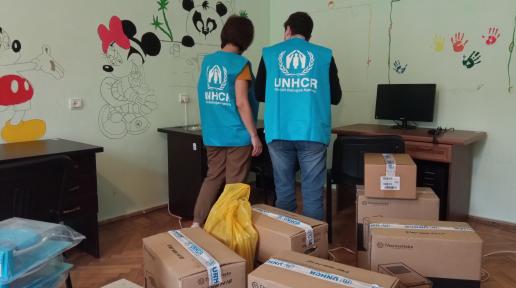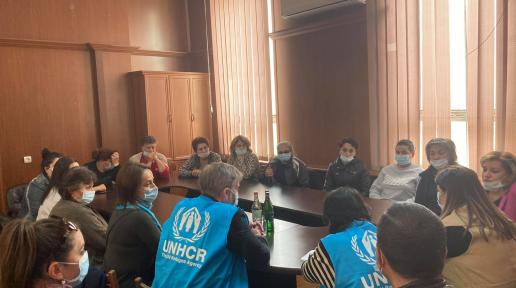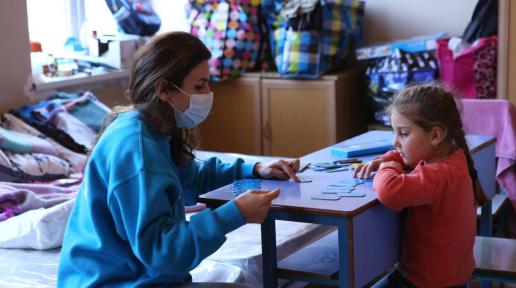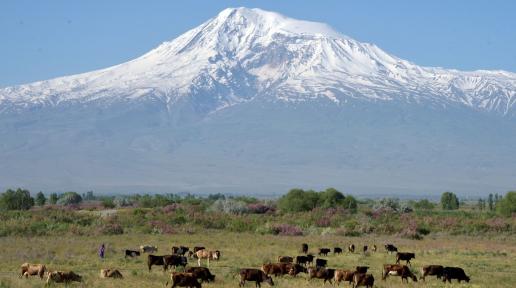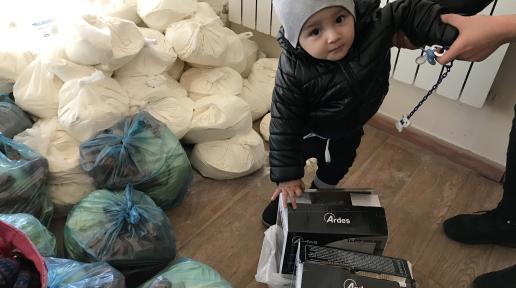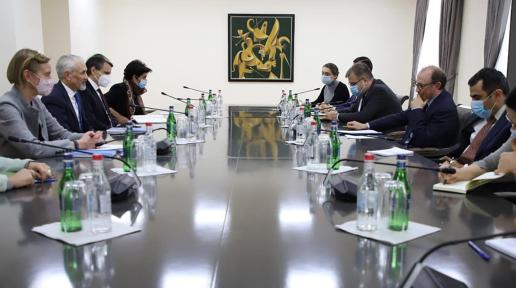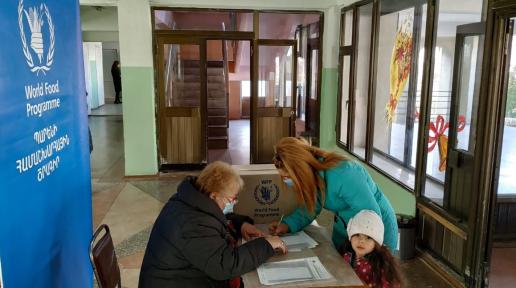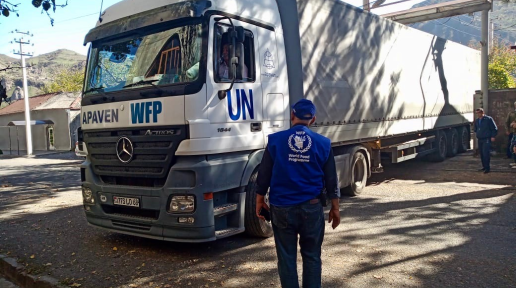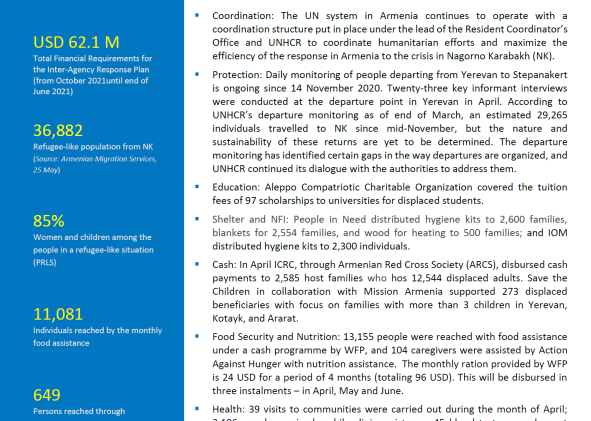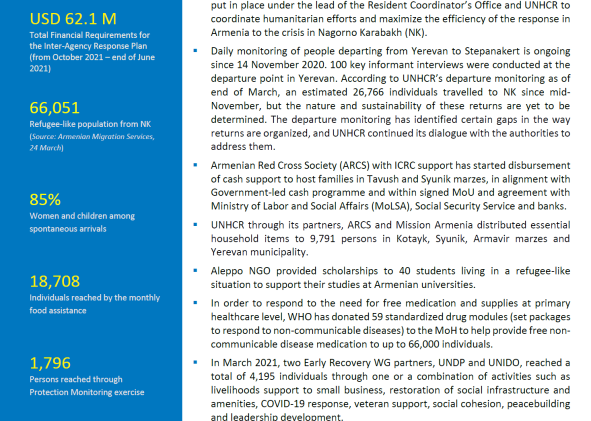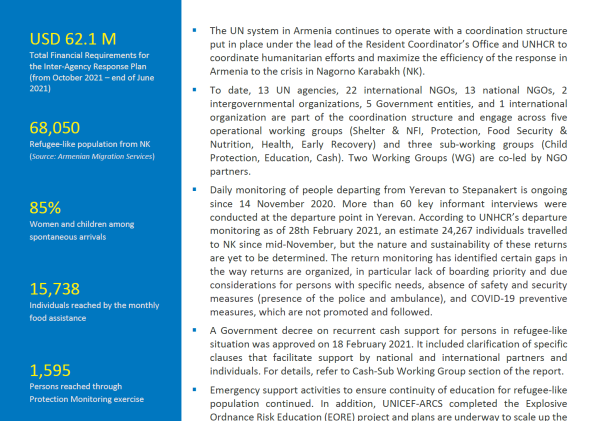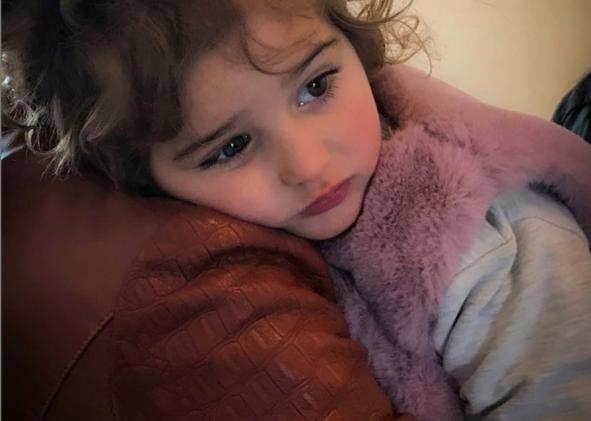The United Nations in Armenia continues to respond to the most immediate humanitarian needs of people displaced from in and around Nagorno-Karabakh and the affected communities in Armenia.
In January 2021, under the joint leadership of the UN Resident Coordinator and UNHCR, the United Nations Country Team, together with NGO partners, launched the Armenia Inter-Agency Response Plan to support conflict-affected people from Nagorno-Karabakh and affected communities in Armenia. The Response Plan involves 35 humanitarian partners and 188 projects with total financial requirements amounting to USD 62.6 million across six key sectors: protection, including child protection; education; shelter and non-food items; food security and nutrition; health, and early-recovery. The plan seeks to expand significant support already provided by UN Armenia and partners, having made an important impact for those displaced from the early days of the conflict.
Later the UN’s Central Emergency Response Fund (CERF) released US$2 million of emergency relief funding for the Armenia Inter-Agency Response Plan. The funding from CERF will help provide prioritized assistance for persons in refugee-like situations and host communities. Delivered through UNHCR, UNICEF and IOM, this will include protection support to ensure that all vulnerable groups, especially children, have access to schools, psychosocial support and primary health services, as well as shelter and non-food items assistance to endure the winter. Women, children, the elderly and people with disabilities will be prioritized for life-saving assistance as the funding is disbursed.
In February the Government of Japan has announced an Emergency Grant Aid of US$ 3.6 million in support of the Inter-Agency Response Plan. This contribution will improve the living conditions of the refugee-like population. More specifically, the contribution will support the recipient organizations in:
- Provision of medical technical training to 6 hospitals and medical equipment to health facilities.
- Installation of hand-washing areas at 3 elementary schools to ensure access to safe water.
- Provision of hygiene kits and other relief supplies to approximately 2,300 people.
- Repair and renovation of 3 evacuation centers.
- Provision of relief supplies for wintering to approximately 4,000 people.
- Provision of medical equipment to 17 health facilities.
- Rehabilitation of 15 school facilities and provision of educational supplies.
UN Armenia's support provided in October-December 2020
As a result of the heaviest fighting since the early 1990’s, approximately 90,000 people were displaced from the Nagorno-Karabakh conflict zone to Armenia between 27 September and 9 November 2020, 88% of whom being women and children.
The UN in Armenia quickly mobilized a response and from early October began complementing Government humanitarian support provided by ten priority municipalities as well as the Ministry of Labor and Social Affairs to those displaced. The UN system put in place a structure with five thematic working groups under the overall lead of the Resident Coordinator’s Office and with support from UNHCR, to coordinate efforts of the UN and humanitarian partners, working closely with Government and municipal authorities. The UN Armenia country team discussed the UN’s support programme with Deputy Prime Minister Grigoryan and Foreign Minister Ayvazyan on 9 and 21 December respectively, noting the close partnership with the Government and the municipalities.
The UN together with its donor partners has provided support across a range of critical needs for those displaced and host communities:
- In particular, from 15 October until now, the UN agencies and partners have responded with the distribution of 33,330 non-food items, including bedding items, towels, hygiene supplies, and household items. A total of 6,800 individual kits and 805 family kits were distributed in various locations, including Yerevan. 500 packages of baby diapers were provided to spontaneous arrivals from Nagorno-Karabakh in Goris, Sisian and Kapan. As part of the winterization response, 1,475 bedding kits, including bed linen, pillows and winter blankets, were distributed in Dilijan, Sisian and Kapan. Additional 21,000 winter blankets and 648 heaters were distributed across different regions. 2,250 children in Vardenis, Kotyak, Hrazdan and Goris benefited from warm clothing.
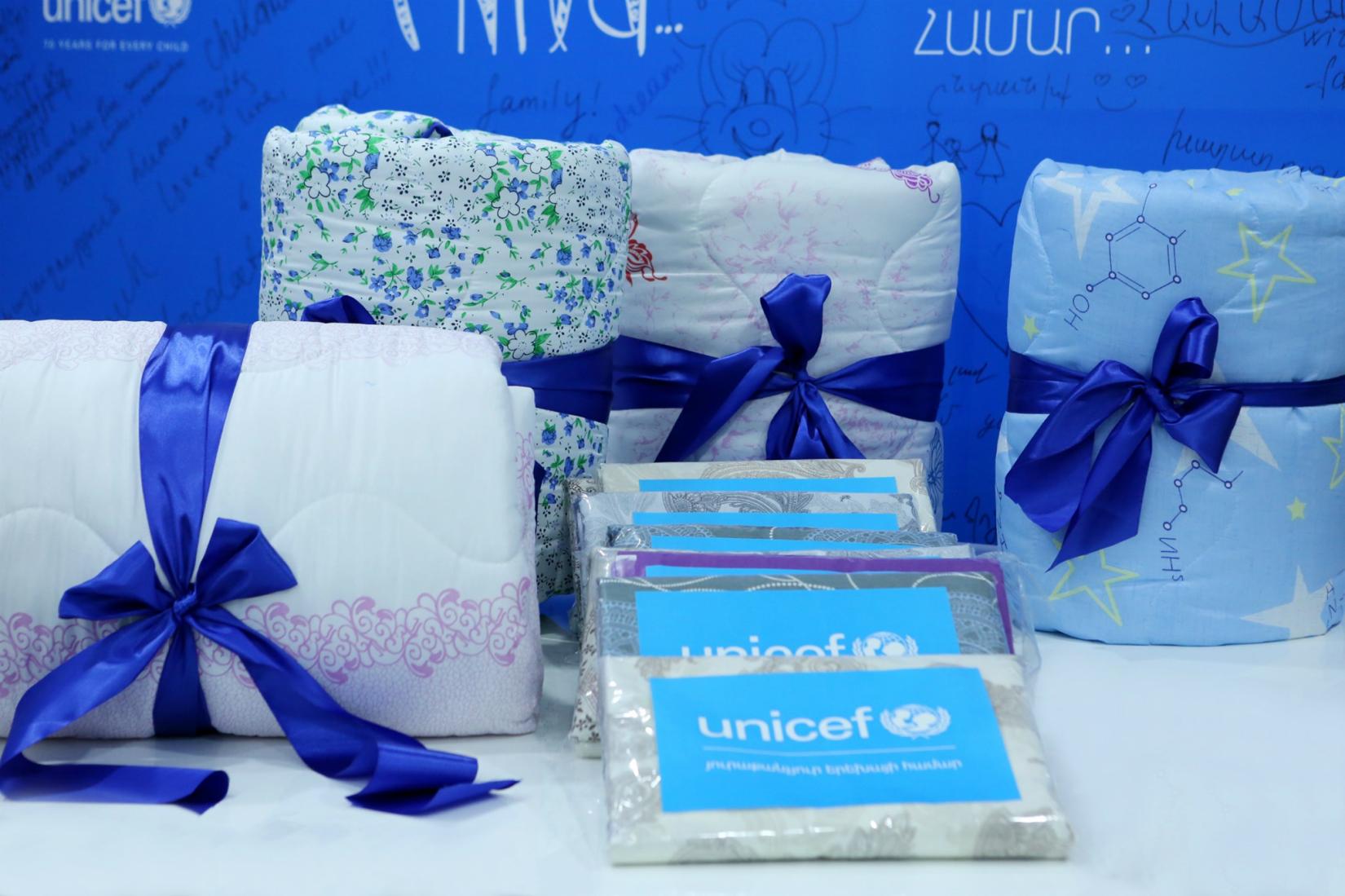
- In response to shelter needs, 1,000 foldable beds have been distributed to families mainly in Gegharkunik, Tavush, Syunik and Kotyak. In addition, the payment of utilities costs for 64 facilities was covered.
- A child protection hotline and helpline for social service workforce professionals was established, providing 24/7 response, advice and guidance on child protection cases. 940 social service workforce professionals (social workers, teachers, school psychologists, youth workers) were trained and skilled to be able to provide psychological first aid and mental health and psychosocial support. 355 children, 520 adolescents, and 394 parents have benefited from mental health and psychosocial support, including through individual and group interventions, art and music. 1,257 people received case management support, including referrals and provision of care packages. 25 adolescents from Nagorno-Karabakh were trained as peer support volunteers for continuous provision of mental health and psychosocial support to adolescents. 100 at-home art kits were distributed to the most vulnerable adolescents.
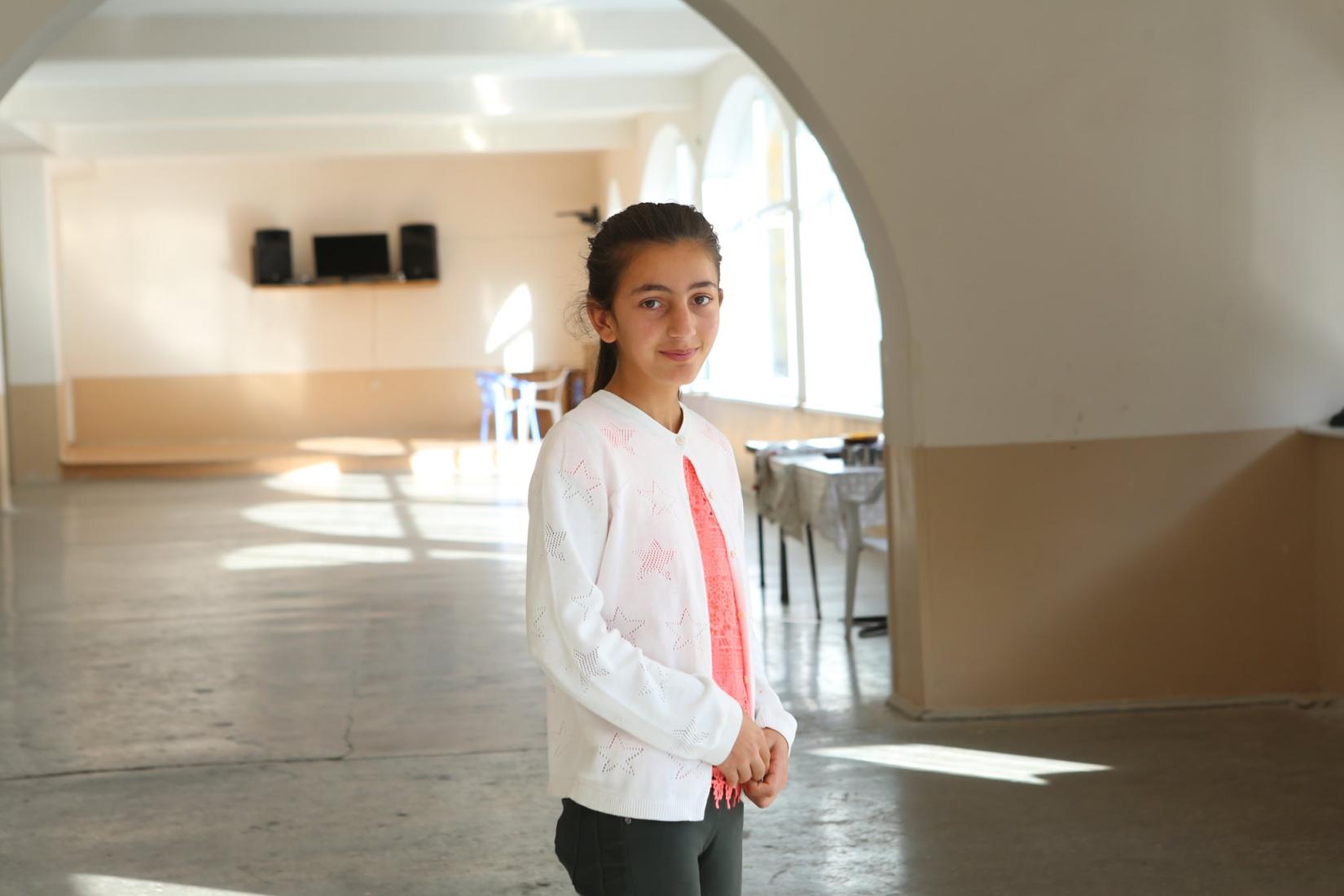
- To address education needs 11,500 displaced school-age children from Nagorno-Karabakh who are currently enrolled in secondary education in Armenia were supported. Peer-to-peer learning was initiated through a network of peer educators for 100 students from Nagorno-Karabakh located in Armavir. UNHCR, together with partners Teach For Armenia and FAR-Children's Support Centre, has provided 20 tablets to the secondary school in Darbnik village of Ararat province which is hosting refugee and displaced families.
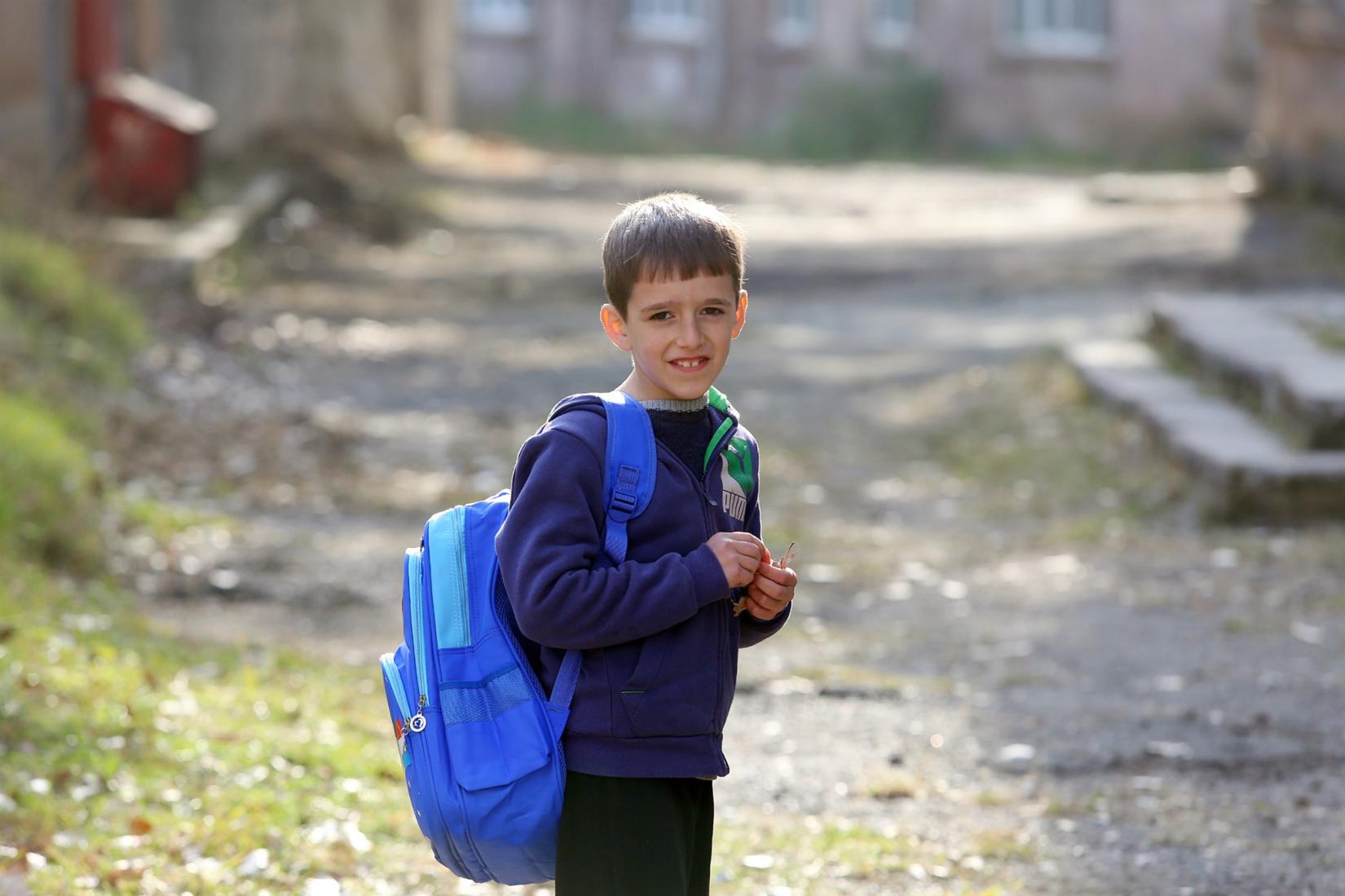
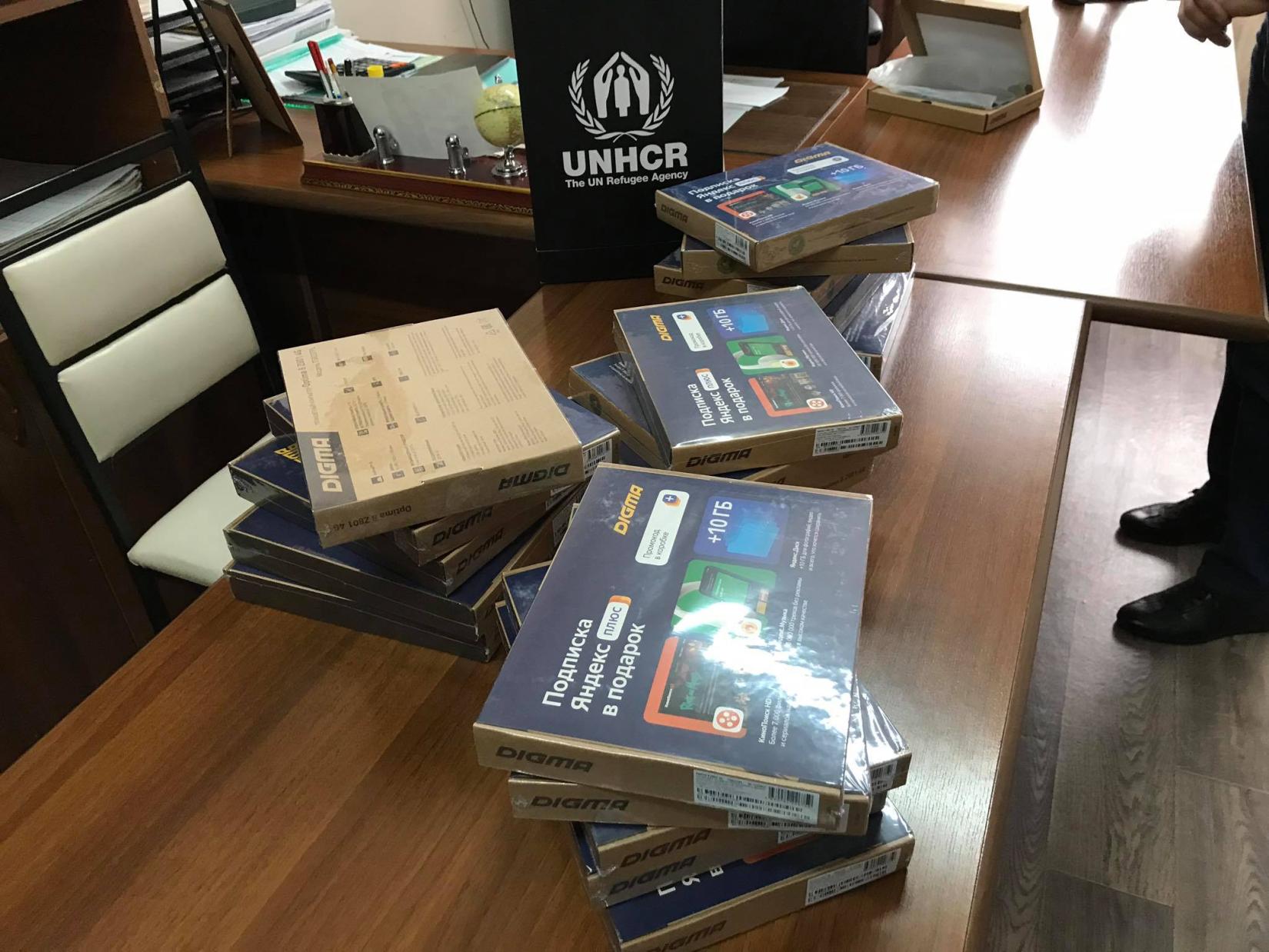
- To alleviate Food Security and Nutrition issues, assistance reached 17,965 people with hundreds of metric tons of food assistance in November and December. UNICEF delivered 5000 boxes of food to families with children below 5 years old. FAO has launched an emergency assistance project to help the Nagorno-Karabakh conflict affected vulnerable groups in Armenia through provision of agricultural inputs such as feed for animals, equipment and materials for building temporary shelter for displaced farming livestock.
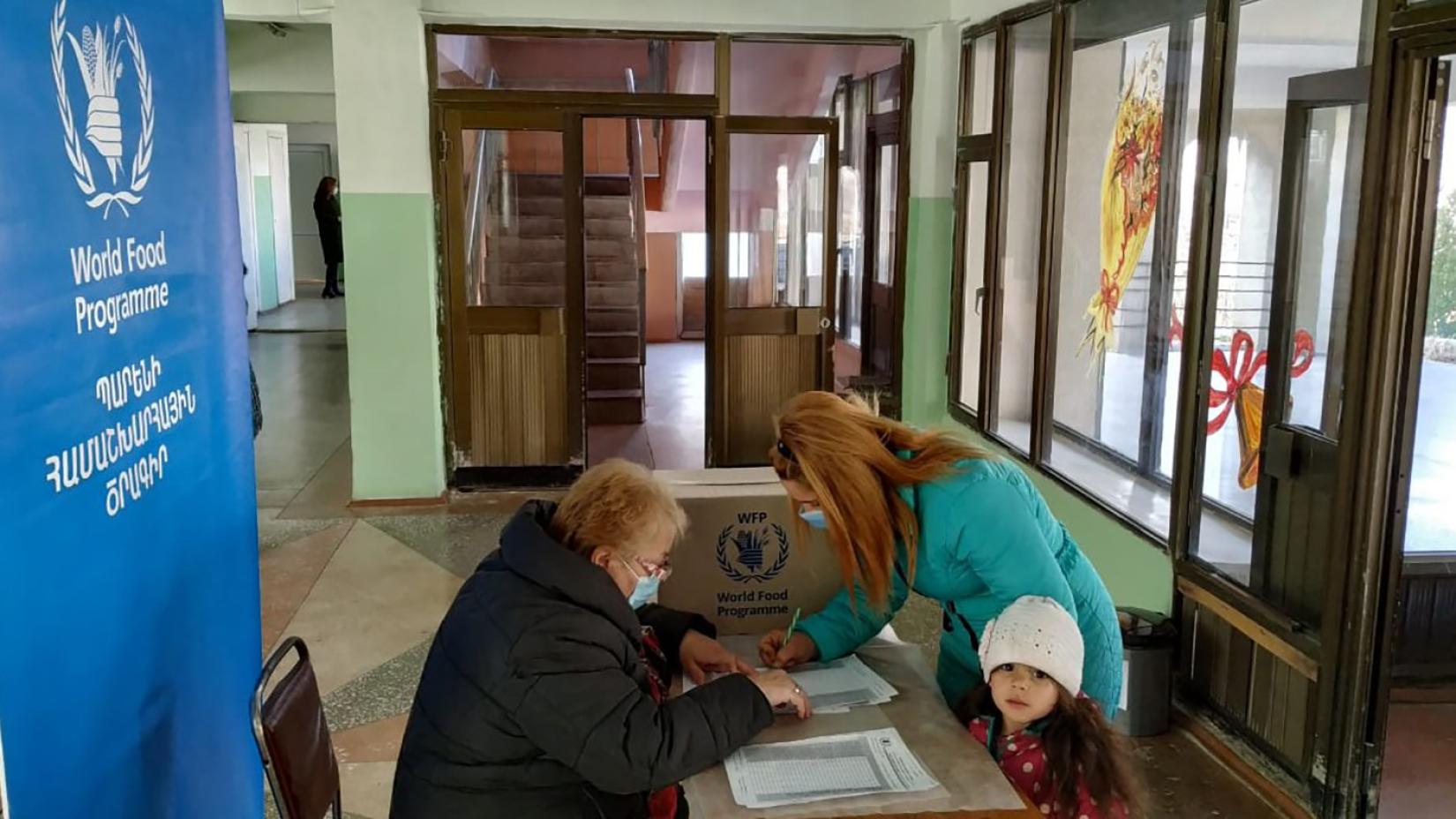
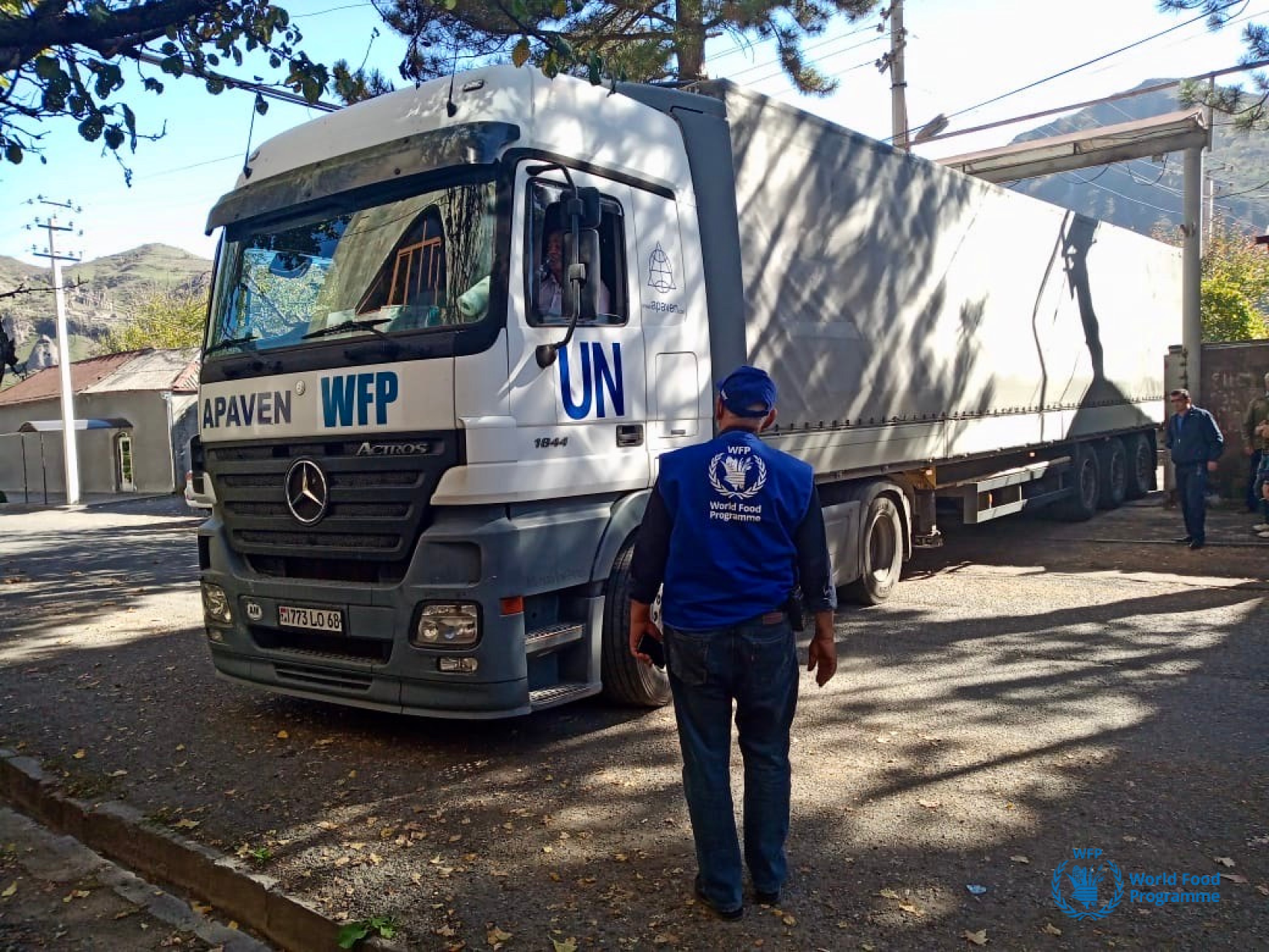
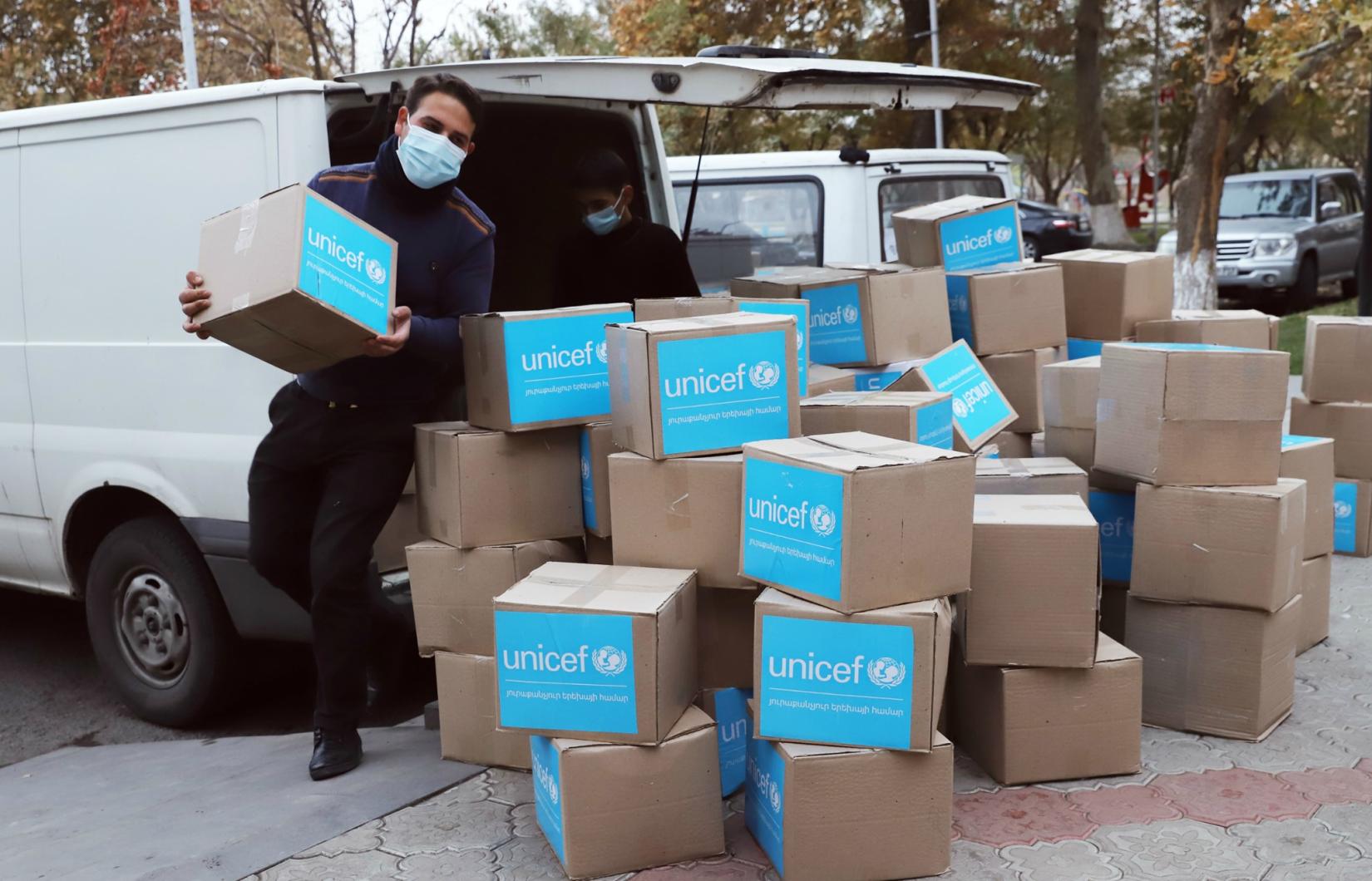
- The UN and partners supported the Ministry of Health’s efforts in providing health services to both citizens of Armenia and the spontaneous arrivals, for example 100 Oxygen Concentrators and other COVID-19 supplies were provided to the Ministry. A UK Emergency medical team was deployed in Armenia for case management and on-the-job training in the “Surb Grigor Lusarovich” medical center and the National Center of Infectious Diseases. With the support of WHO, the Ministry of Health of Armenia and British Embassy five doctors and nurses have arrived in Armenia from the United Kingdom to support Armenian healthcare workers in managing severe COVID-19 patients. UNICEF provided hygiene kits to 1500 families from Nagorno-Karabakh in Jermuk and Yerevan and 300 sets of bed linen.
- Contributing to Early Recovery and aligned with ongoing planning towards additional renewable energy solutions for target municipalities, assistance has been provided to meet increasing utility costs (e.g. 100 tons of briquette fuel for 50 arrival and host families in Lori region). UNDP Sustainable Communities project, funded by the Russian Federation, in partnership with the Ministry of Territorial Administration and Infrastructure of Armenia, established “Ambar” Foundation with the aim to become a seed reserve logistic center to ensure food security of Chambarak community. As a result, in 2020 the foundation harvested 200 tons of potato and 39 tons of barley. The profit will go to the development of Chambarak community.
To date, 15 UN agencies, 32 international NGOs, 26 national NGOs, three intergovernmental organizations, three Government entities, and six international organizations operate in the coordination structure across the five thematic working groups to address the following needs: Shelter and Non-Food Items, Protection, Food Security and Nutrition, Health, as well as consider already Early Recovery. Three additional sub-working groups address Child Protection, Education, and Cash Assistance. The working groups are supported by an Information Management team, advisors on gender as well as on mental health and psychosocial support (MHPSS).
To provide detailed and continuously updated information regarding the humanitarian response of UN agencies and partners, an Armenia Response Portal was developed with the support of UNHCR. The portal includes factsheets and figures, reports and assessments, and describes all the support provided by each of working groups.

